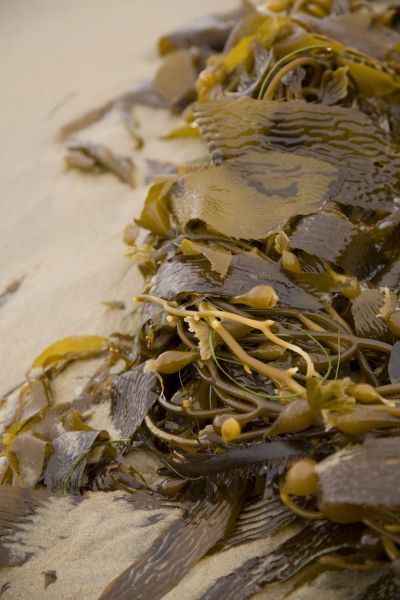Obesity’s new natural cure

According to a team of researchers at Newcastle University, sea kelp can reduce the body's fat absorption by more than 75 percent and could be the answer to fighting obesity.
The study led by Newcastle University's Iain Brownlee, PhD, research associate and molecular physiologist and Jeff Pearson, PhD, professor and biochemist, presented their findings at American Chemical Society Spring meeting in San Francisco on March 21.
Alginate, a natural fiber found in sea kelp, was tested along with 60 different natural fibers to determine the amounts of fat digested and absorbed by using an artificial gut and it proved to work better than any natural or over the counter anti-obesity treatment. Brownlee added, "There are countless claims about miracle cures for weight loss. Few offer sound evidence."
The promising findings "suggests that if we can add the natural fibre to products eaten daily - such as bread, biscuits and yoghurts - up to three-quarters of the fat in that meal could simply pass through the body. Initial taste tests have been encouraging," said Brownlee. "The next step is to carry out clinical trials to find out how effective it is when eaten as part of a normal diet."
"These initial findings suggest alginates could offer a very real solution in the battle against obesity," concluded Brownlee. The study is a three-year project funded by the Biotechnology and Biological Sciences Research Council.
Join our commenting forum
Join thought-provoking conversations, follow other Independent readers and see their replies
Comments
Bookmark popover
Removed from bookmarks